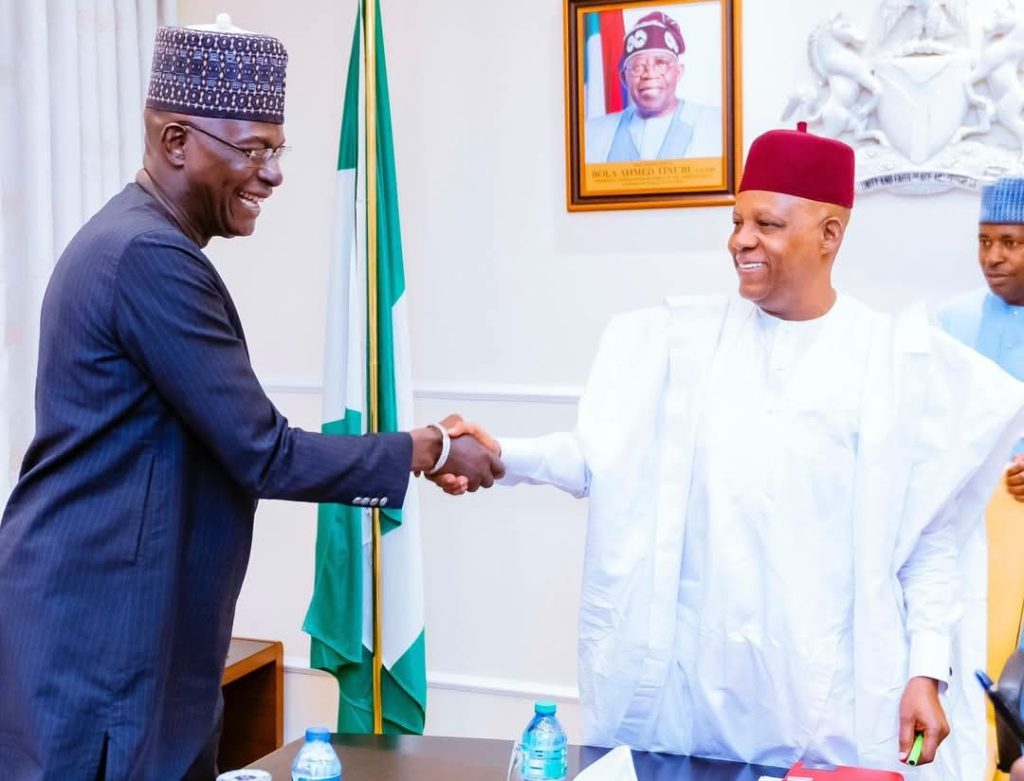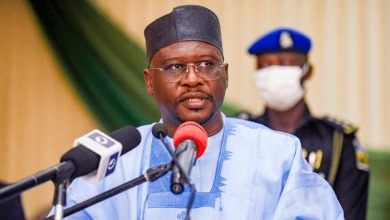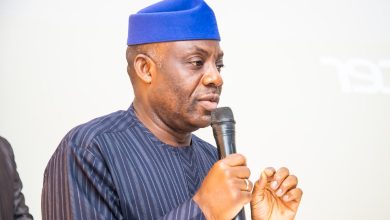Nigeria Partners UNICEF to Train 20 Million Youths in Digital Skills by 2030
Nigeria is stepping up its fight against youth unemployment by teaming up with UNICEF to train 20 million young people in digital skills by 2030.
With a booming youth population and tech-driven future ahead, the GenU 9JA initiative aims to turn Nigeria’s digital divide into a national advantage.
In a bold move to address Nigeria’s youth unemployment crisis and bridge the country’s digital divide, the federal government has deepened its partnership with the United Nations Children’s Fund (UNICEF) to empower 20 million young Nigerians with digital skills by 2030. The renewed collaboration is being executed under the Generation Unlimited Nigeria (GenU 9JA) platform, a dynamic public-private-youth initiative aimed at connecting learning to earning for Nigerian youth.

Speaking at a high-level meeting in Abuja, Vice President Kashim Shettima reaffirmed the administration’s commitment to equipping young Nigerians between the ages of 10 and 24 with relevant digital skills. With Nigeria’s population now estimated at over 230 million and an average age of just 17, Shettima described the youth bulge as both a challenge and a tremendous opportunity for national development.
“It is an honor for me to serve as the chairman of Generation Unlimited (GenU 9JA),” Shettima said. “Beyond rhetoric, if we want to survive and thrive, we must empower our youth through digital means. That’s the only way forward.”
Digital skills as a lifeline
The initiative aims to serve as a national platform where government, private sector players, development agencies, and civil society organizations collaborate to create a digital bridge for young Nigerians. Under the GenU 9JA umbrella, youths are being trained in software development, data science, cloud computing, digital marketing, and more to help them transition from education to employment in a competitive global economy.
UNICEF’s Deputy Representative, Dr. Rownak Khan, highlighted that GenU 9JA is one of UNICEF’s most successful global youth empowerment efforts. She noted that the platform is built on three key pillars: digital connectivity, education-to-employment pathways, and youth engagement.
“We’ve seen incredible results from Nigeria. Few countries globally have recorded the level of youth impact that GenU 9JA has achieved,” Khan stated.
Since its inception in 2022, the program has impacted over 10 million young Nigerians and facilitated over 1,500 job placements, according to Celine Lafoucriere, Chief of UNICEF Lagos Field Office. She emphasized that the next phase requires stronger alignment with national policy frameworks and better coordination across stakeholders to reach the 2030 target.
A partnership based on respect, not Charity
Shettima was quick to point out that Nigeria is not seeking charity from international partners. Instead, the country is focused on sustainable, equitable collaborations that yield mutual benefits.
“We are not looking for charity. We want a mutually beneficial relationship one based on respect and shared interests,” the vice president affirmed.
He underscored that thousands of Nigerian youths are already leveraging digital skills to earn income from international companies, all from the comfort of their homes. With the right training and digital access, millions more could follow.
UN Resident and Humanitarian Coordinator, Mohammed Fall, praised Nigeria’s leadership and vision under President Tinubu. He described GenU 9JA as central to solving critical issues like youth unemployment, education inequality, and digital exclusion under the Renewed Hope Agenda.
“Under the Renewed Hope Agenda, youth-focused initiatives, skills, digital access, and employment are critical. And GenU is helping to drive those priorities,” Fall said.
Toward a digitally inclusive future
The GenU 9JA initiative is a strategic pillar for inclusive development and a blueprint for how youth can become key players in national transformation. With UNICEF, the Nigerian government, and other partners working in lockstep, the goal of training 20 million youths by 2030 no longer seems aspirational, it’s becoming a real possibility.
If successfully implemented, this initiative could position Nigeria as Africa’s largest hub of digitally skilled youth, ready to contribute meaningfully to both local innovation and global tech economies.



